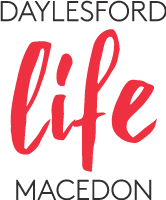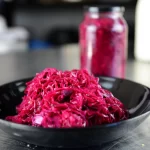In a strange and circuitous way my life has led me to thinking daily about an old adage: ‘go with your gut’. I have lived in many places around the world - from Japan to Brussels.
All of these cultures have been going with their guts – for centuries – with what they need to eat to stay healthy. From a Jewish neighbourhood in Chicago, to a community living at the base of Mount Takao in Japan, slow fermented foods were on every home menu. This was more than mere coincidence.
I gathered these recipes like a child collects feathers. I introduced kefir, natto, miso, kimchi and yoghurts into my family’s diet. I noticed an improvement in my family’s overall health. Personally, I felt stronger, more physically and mentally alert—and I totally caught the fermenting bug! In 2013, I started my own traditional slow fermentation business called The Fermentary out of beautiful Daylesford.
In my years of learning from master fermenters and through my own fermentation journey, one of the things I’ve realised, is that making things delicious takes time. It’s called slow fermentation for a reason. This is so at odds with the ethos of industrialised food production. Since the second half of the twentieth century, our foods have become more homogenised in taste. Cheeses taste largely the same. Yoghurts taste far more sweet than sour.
I’ve often wondered if, perhaps, one of the consequences of our often bland, industrialised food, is that it has moved us away from eating and drinking what our guts tell us makes us feel good.
The way we talk about food speaks volumes about what we perceive its value to be, and what its role in our lives is or ought to be. Perhaps, because they’ve been largely missing from most Anglo-Australian meal times, many ferments, may look unfamiliar. Some may even seem pretty darn weird. The flavours may seem also taste unusual. However unusual a ferment might be, I always try to impress on people that our ferments are always just food and drink—delicious and natural. They are produced in small batches, to be enjoyed daily like other dietary essentials. It’s simple: slow fermentation is more than medicine.
In my experience, I’ve learned that if you listen to your gut it will probably tell you what you need to hear, and what to eat. So, while I can’t always explain why a wild ferment tastes better than something with a lab-grown culture, or why a naturally sparkling water kefir will always beat the force-carbonated kind, I have come to believe that it doesn’t necessarily matter. When something makes you feel amazing and is completely mouth-watering, go with it. It’s what ancient cultures around the world have been doing for centuries.
Sharon runs very popular workshops at the Fermentary in Daylesford and has written international best-seller, “Ferment for Good – Ancient Food for the Modern Gut.” To find out more about fermenting go to fermentary.com.au
About the author

Sharon Flynn, The Fermentary
I've become a regular speaker at some of Australia’s leading food events, and love to share my passion through workshops and classes. I now know first-hand the difference that consuming a variety living foods and drinks can make - making from scratch and being aware of what is in your food. We dream of a community store, where you can pick up your ferments in your own jar, eat and drink something special, feel at home and leave full of good food. We want to grow not just a community, but people confident that these foods are needed. So, watch this space; catch up on instagram, read the book.
- Sharon Flynn, The Fermentaryhttps://daylesfordmacedonlife.com.au/author/sharon-flynn-the-fermentary/January 11, 2022
Share this article
While You're Here
A Tour Can Be The Cure
There is plenty to see and do in Daylesford and the Macedon Ranges. With more than 80% of the…
Bee Friendly Gardens
The Diggers Club’s Top Tips for Attracting Bees to your garden
Stay. Play. Relax.
That feeling of anticipation as a child when you head off on a mini adventure is one that returns…
Welcome to Daylesford – one of the most welcoming places on earth
As you might have heard, Daylesford was recently named the fourth most welcoming place in the world…
Creative Arts,Health & Wellness,Shopping,Eat & Drink,Featured,Places to stay,Outdoor Experiences,History & Culture
Shopping for that special something?
Stroll down the historic blue-stone-paved Piper Street of Kyneton and fill a basket with locally…
The Art of Resting
Why is it, that the older you get the quicker time passes? Especially in a world driven by busyness…








